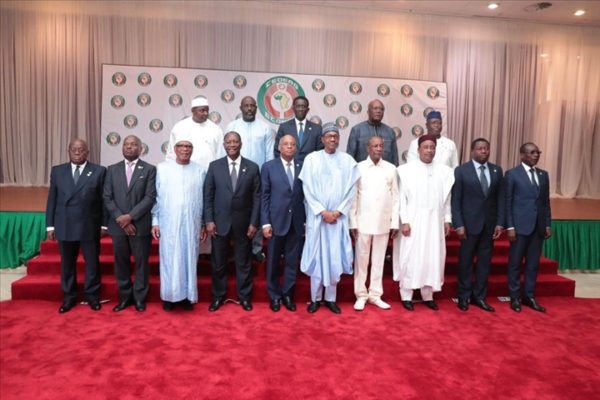Extraordinary Summit of ECOWAS Heads of State and Government on Terrorism in Ouagadougou, 9 to 14 September 2019
While the ECOWAS Heads of State and Government meet on Saturday, September 14, in an extraordinary summit on terrorism, the signatory organizations, working alongside local communities affected by insecurity in the Sahel countries, are alerting the importance of placing the protection of civilians at the heart of responses to insecurity in the Sahel and recall the human cost of the fight against terrorism.
Civilians are the first victims of conflicts in the Sahel, affected by an unprecedented humanitarian crisis. In one year, the number of displaced people in the border region between Niger, Burkina Faso and Mali has increased five-fold. Despite the various measures put in place by the States of the region, the security situation continues to deteriorate, causing a considerable increase in humanitarian needs in the year 2019, when 13 million people are currently in need of assistance. In addition to the chronic food needs in the region, massive and continuing needs for food assistance, clean water, hygiene and sanitation, shelter, health, protection and education are added.
In Burkina Faso, “the situation is becoming more and more worrying. The number of IDPs jumped from 60,000 at the beginning of the year to more than 271,000 at the end of August. The projections now speak of more than 300,000 displaced people by the end of the year. Humanitarian actors are overwhelmed by the magnitude and rapid deterioration of the crisis. Said Omer Kabore, Oxfam country director in Burkina Faso.
In Mali, in addition to some 310,000 officially registered IDPs or refugees, 920 schools remained non-functional at the end of the 2018 – 2019 school year in crisis-affected areas. On the eve of the next school year, several hundred thousand girls and boys are once again at risk of being deprived of access to education mainly because of growing insecurity despite the mobilization of children. military and security resources in recent years.
Faced with a situation of widespread insecurity that also results in an increase in inter-community conflicts, the security will fail to stem the crisis in the long-term. It is therefore essential to involve the communities in the search for solutions to the conflict, giving equal importance to men, women and young people, with respect for their rights. Political solutions, which respond to the demands and needs of the communities, especially around the improvement of governance, gender justice and the fight against inequalities must be led by the Heads of State and Government of ECOWAS.
Moreover, “the aid must not be used for security purposes, but to enable vulnerable populations to escape poverty and live with dignity,” said Ibrahima Coulibaly, the President of the Network of Peasant Organizations and Producers of Africa. West (ROPPA). The security objectives remain different from the objectives of the aid and respect for the humanitarian principles, which notably allows access to the most vulnerable populations, must be guaranteed.
Priority must be given to the needs of the communities through a human security approach, which not only takes into account the security threats perceived by the states, but rather the threats of protection identified by the communities themselves, through a process participatory and inclusive. To do this, the space for expression and participation of communities and civil society must be protected.
As the humanitarian crisis in the central Sahel continues to worsen and spread, the ECOWAS Heads of State and Government, as well as donors and the international community must imperatively continue to invest to bring responding to the needs of the population and making the protection of civilians a priority so that the fight against terrorism does not worsen the humanitarian situation and protect the thousands of civilians already affected by insecurity.



